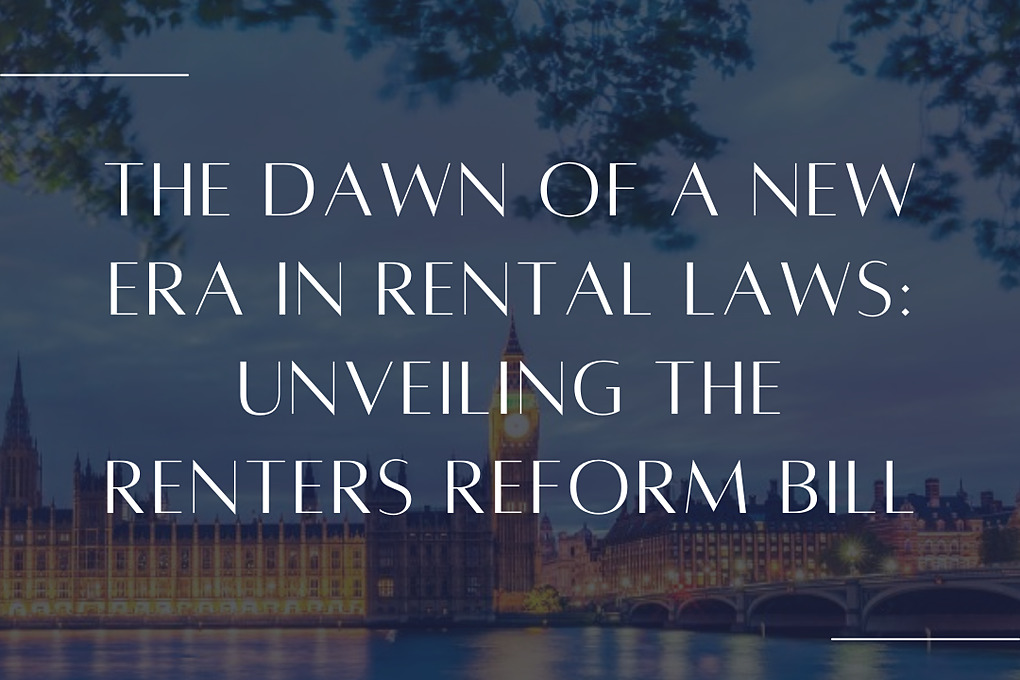The Dawn of a New Era in Rental Laws: Unveiling the Renters Reform Bill

- May 17th 2023
The long-anticipated Renters Reform Bill, a legislation poised to reshape the rental landscape, has finally been published by the government. This ground-breaking legislation comes as a fulfilment of a promise first made in 2019, and its arrival could not be timelier.
The Renters Reform Bill is a testament to a series of commitments that lean towards a pro-tenant stance while attempting to balance the rights of landlords. It is set to usher in several transformative changes that will make it more challenging for property owners to evict tenants, simplify the process for renters to keep pets, introduce a Decent Homes Standard, and enforce landlords' participation in a compulsory Ombudsman scheme.
This monumental shift in housing laws is expected to have a far-reaching impact on the lives of approximately 11 million tenants across England. The government proclaims that this legislative makeover will result in safer, fairer, and superior-quality homes, attributing it to a much-needed once-in-a-generation reform in housing regulations.
Formally presented to Parliament, the Renters’ (Reform) Bill is a deliverable of the Tories’ 2019 manifesto commitment to eradicate section 21 evictions. This move, according to the government, will embolden renters to challenge unscrupulous landlords without the looming fear of losing their homes.
In a bid to strike a balance, the Bill also seeks to “protect” over two million landlords by streamlining the process to regain possession of their properties under specific circumstances. This could be to facilitate a property sale, accommodate a close family member, or when tenants intentionally withhold rent payments.
To curb tenant irresponsibility, the Bill also stipulates reduced notice periods for tenants who breach their tenancy agreement or cause damage to the property. The government asserts that the reforms will bolster powers to evict anti-social tenants, widening the scope of disruptive and harmful activities that can precipitate an eviction.
Further, a more digitised courts process will be put into action to expedite cases of eviction that do end up in courts, thereby reducing unnecessary delays.
In addition to these measures, a mandatory Ombudsman for landlords will be instituted. A new digital Property Portal will be launched, outlining landlords’ obligations and providing crucial information to tenants, thereby empowering them to make informed decisions when signing a new tenancy agreement.
Housing Secretary Michael Gove eloquently summarises the spirit of the new Bill. “Countless renters are subjected to living in damp, unsafe, cold homes, feeling helpless to rectify the situation, and constantly under the threat of sudden eviction," Gove asserts. He continues, "Our government is resolute in addressing these injustices by offering a New Deal to those residing in the Private Rented Sector; one with quality, affordability, and fairness at its core."
Tenants will also relish the legal right to request a pet in their home, which landlords must consider and cannot arbitrarily refuse. To safeguard their property, landlords can mandate pet insurance to cover any potential damages.
The Bill will also propel the Decent Homes Standard into the private rented sector for the first time, ban property owners and agents from outrightly refusing to rent to tenants receiving benefits or with children, and amplify councils’ enforcement powers. It also introduces a new mandate for councils to provide reports on enforcement activity, ushering in a new era of transparency and accountability in the housing sector.
In conclusion, the Renters Reform Bill marks a significant stride towards bridging the gap between property owners and tenants, creating a more equitable and fair housing system in England. It's a promising step towards ensuring every individual can proudly call their place "home".








